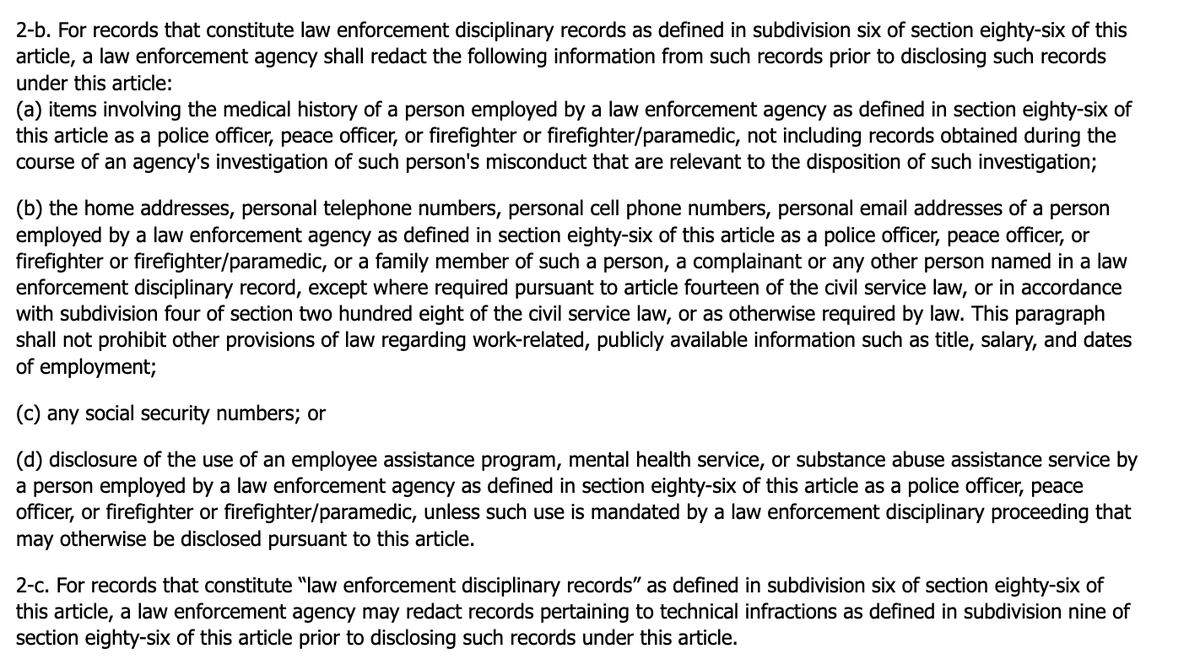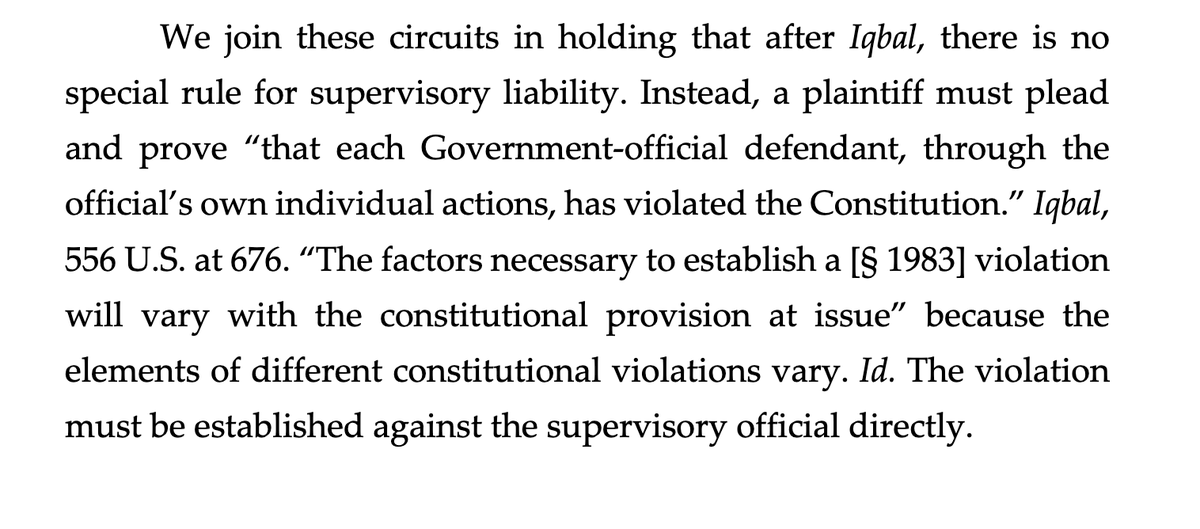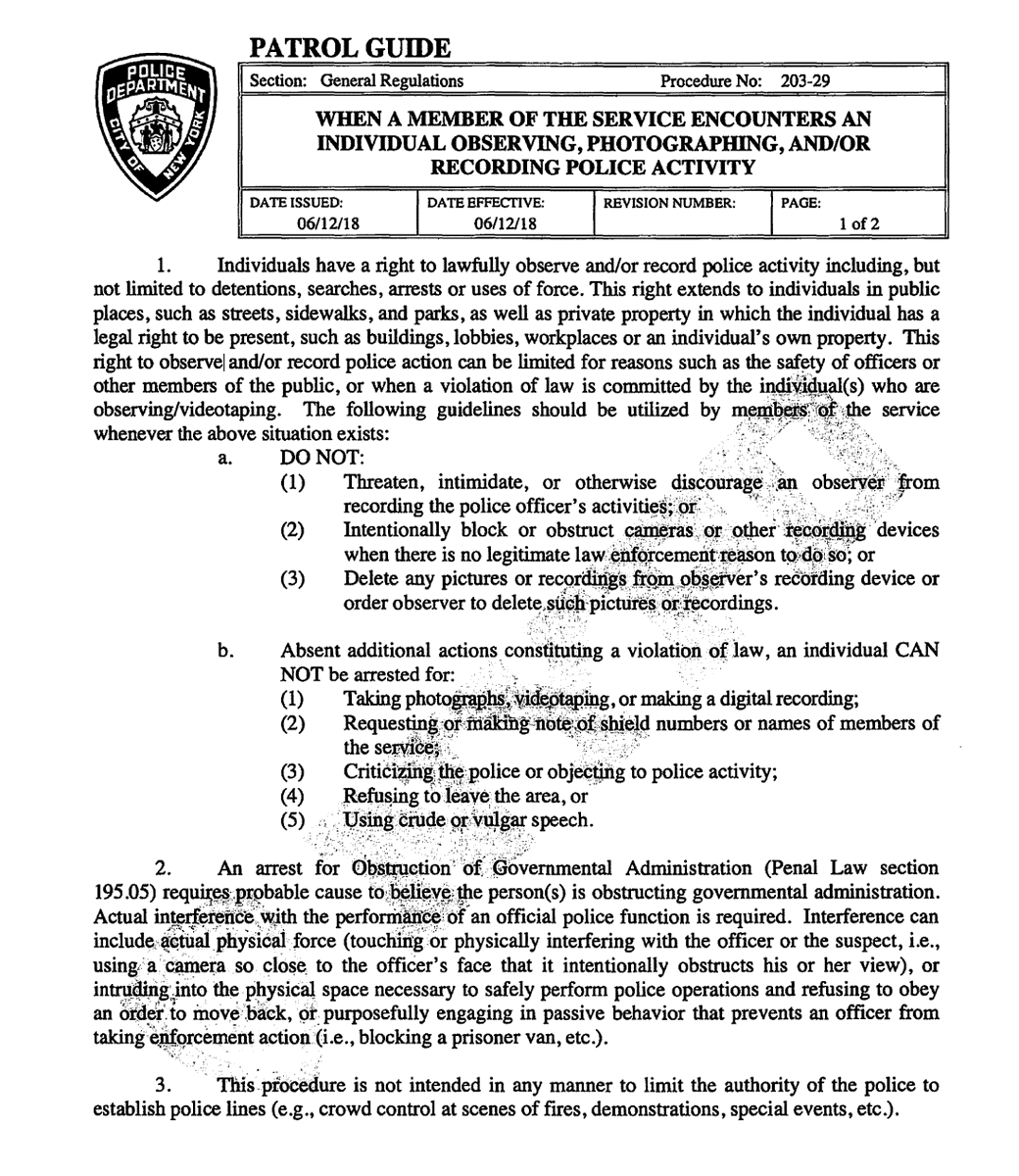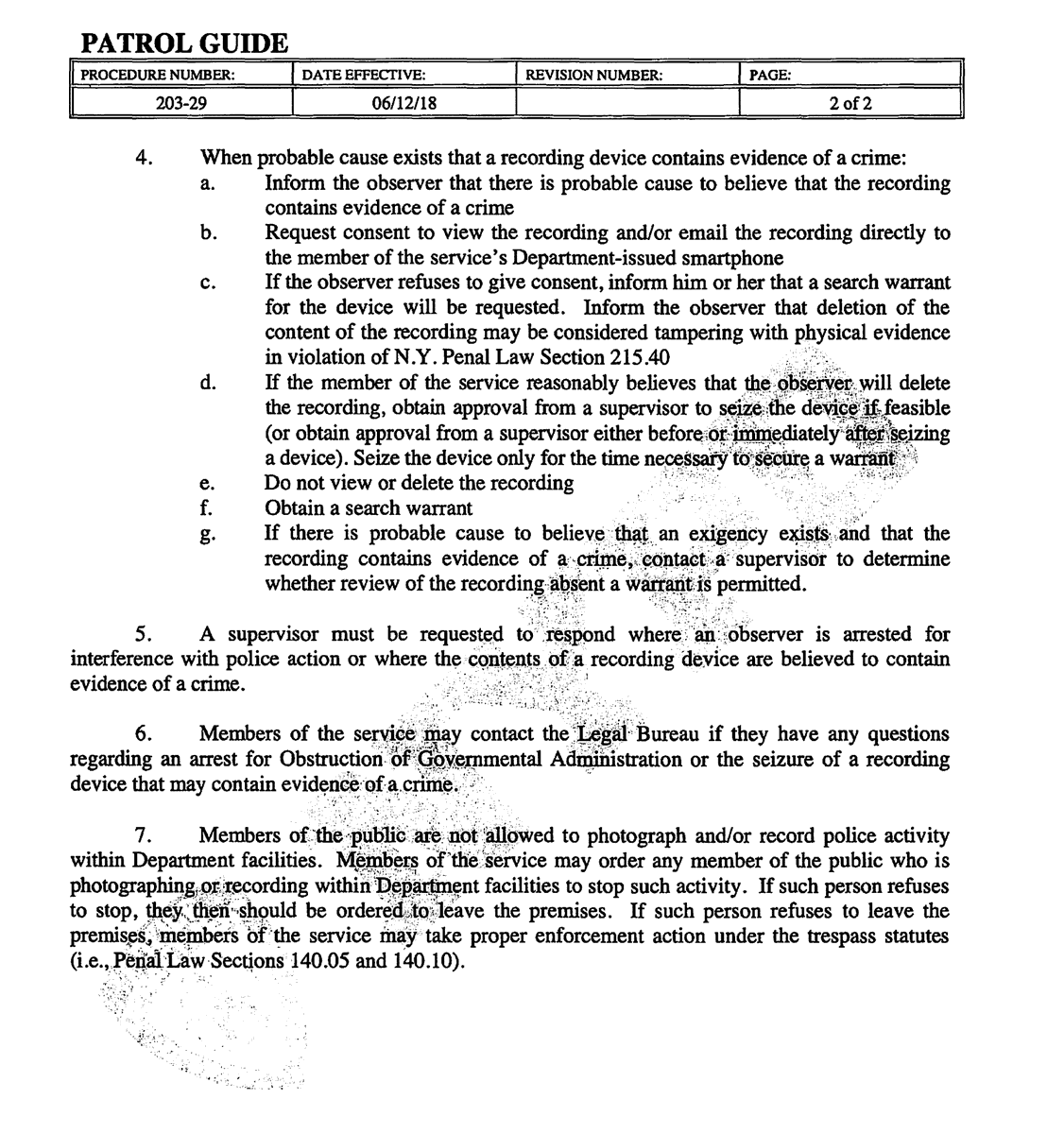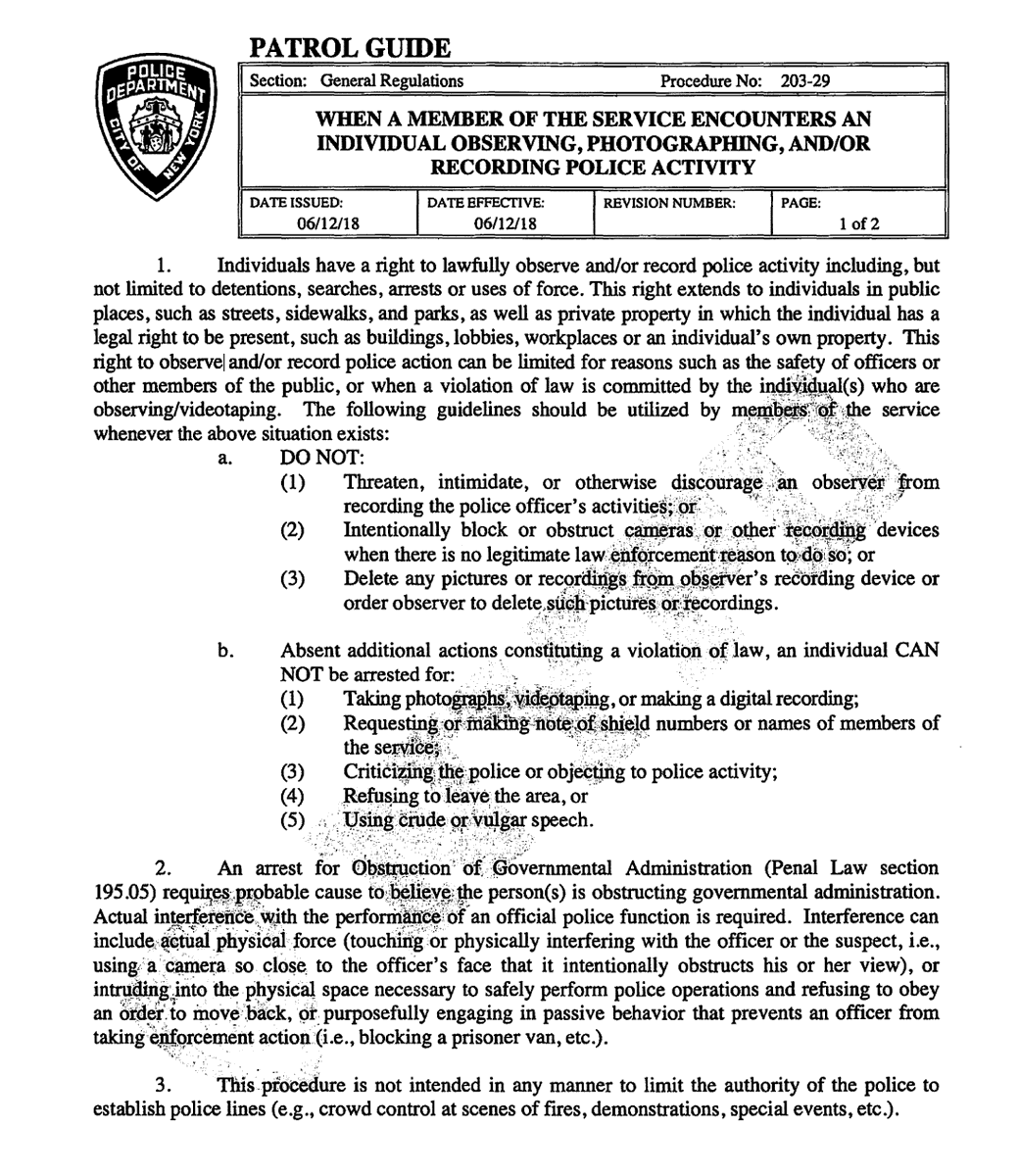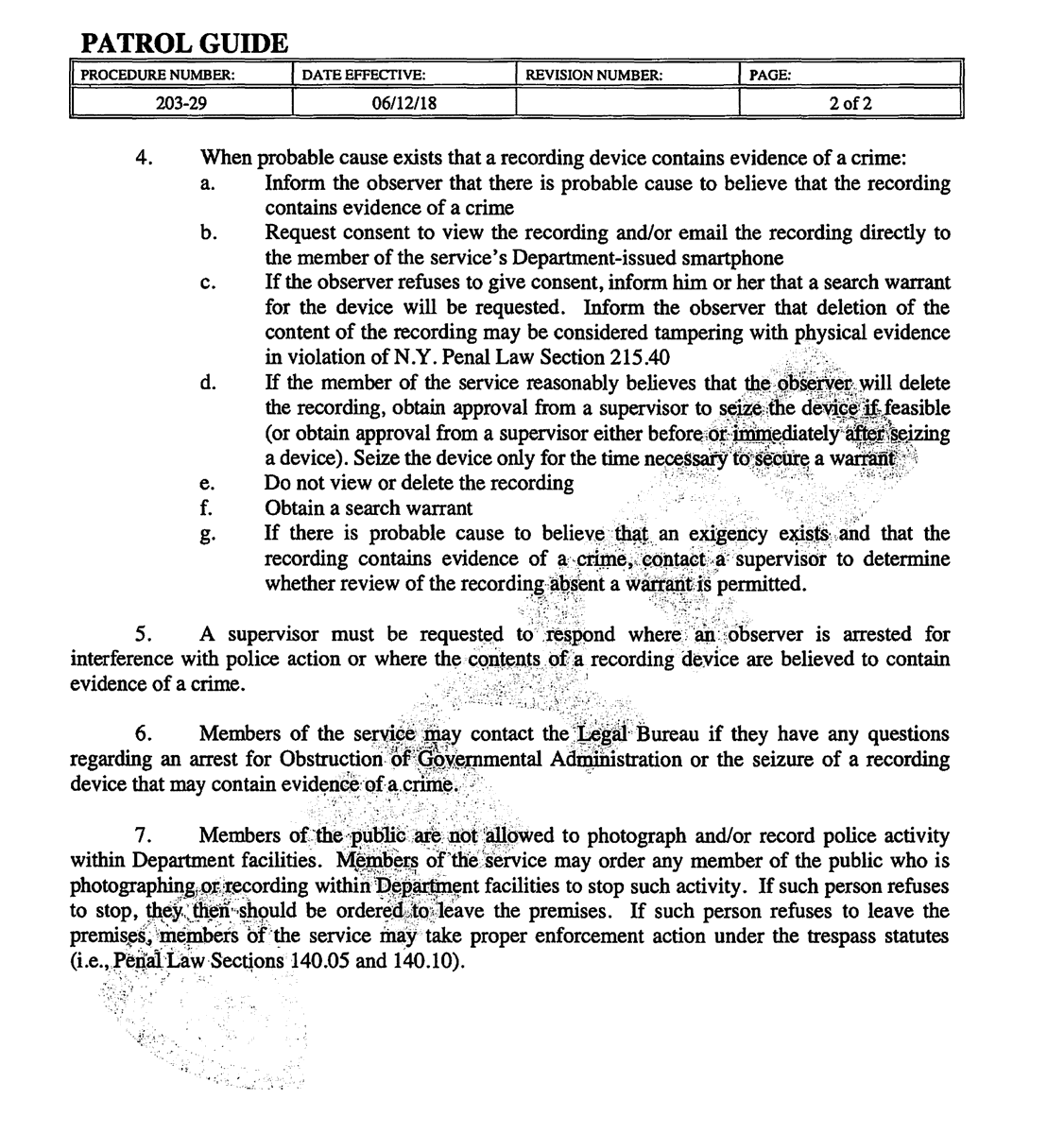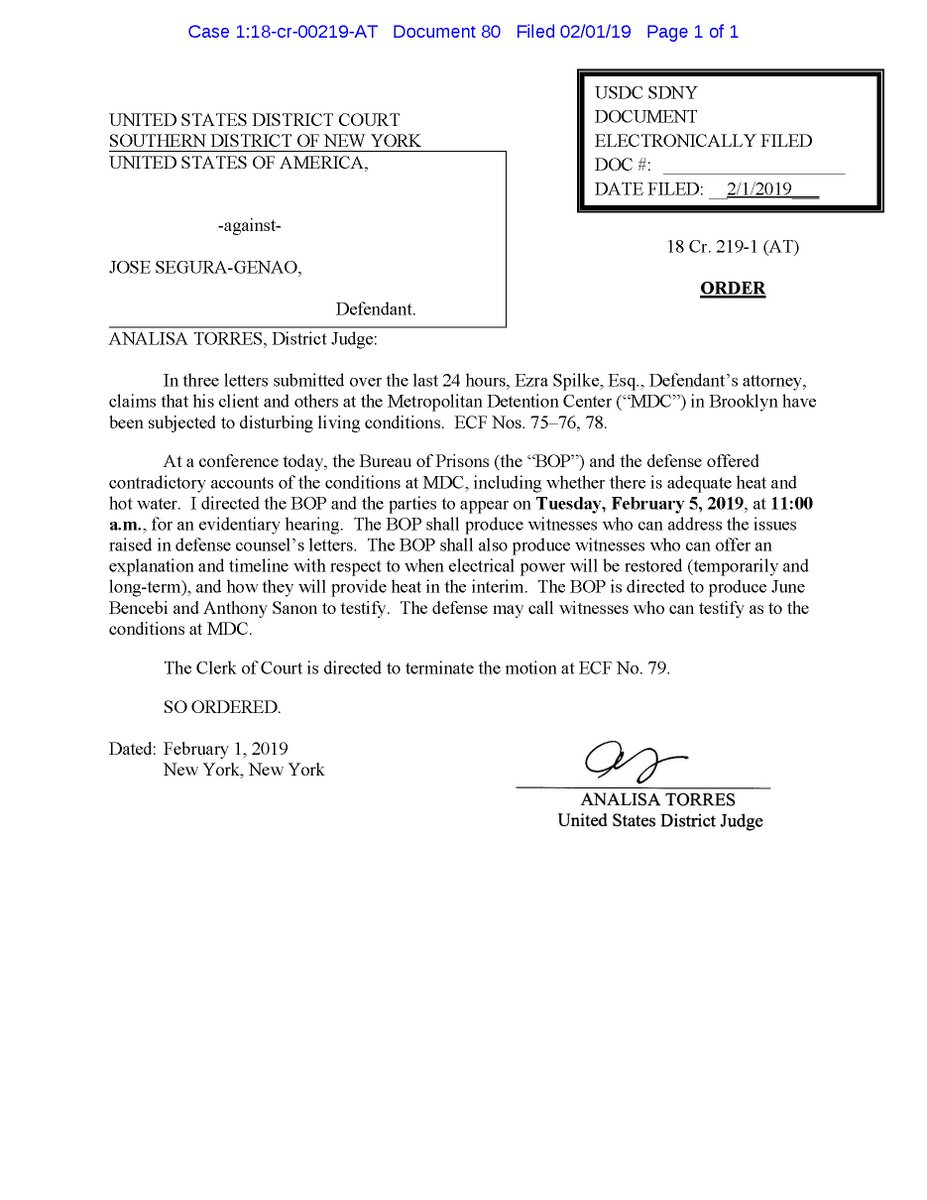
The decision is embedded here: scribd.com/document/48939…
https://twitter.com/JonCampbellGAN/status/1344027146617057280
Here are a few nuggets from this 50-a decision:
After an "in a nutshell" history of 50-a, the Court summarizes the "sweeping statutory reforms" that were "enacted in combination with the complete repeal of" 50-a including specifically changes to the FOIL

After an "in a nutshell" history of 50-a, the Court summarizes the "sweeping statutory reforms" that were "enacted in combination with the complete repeal of" 50-a including specifically changes to the FOIL

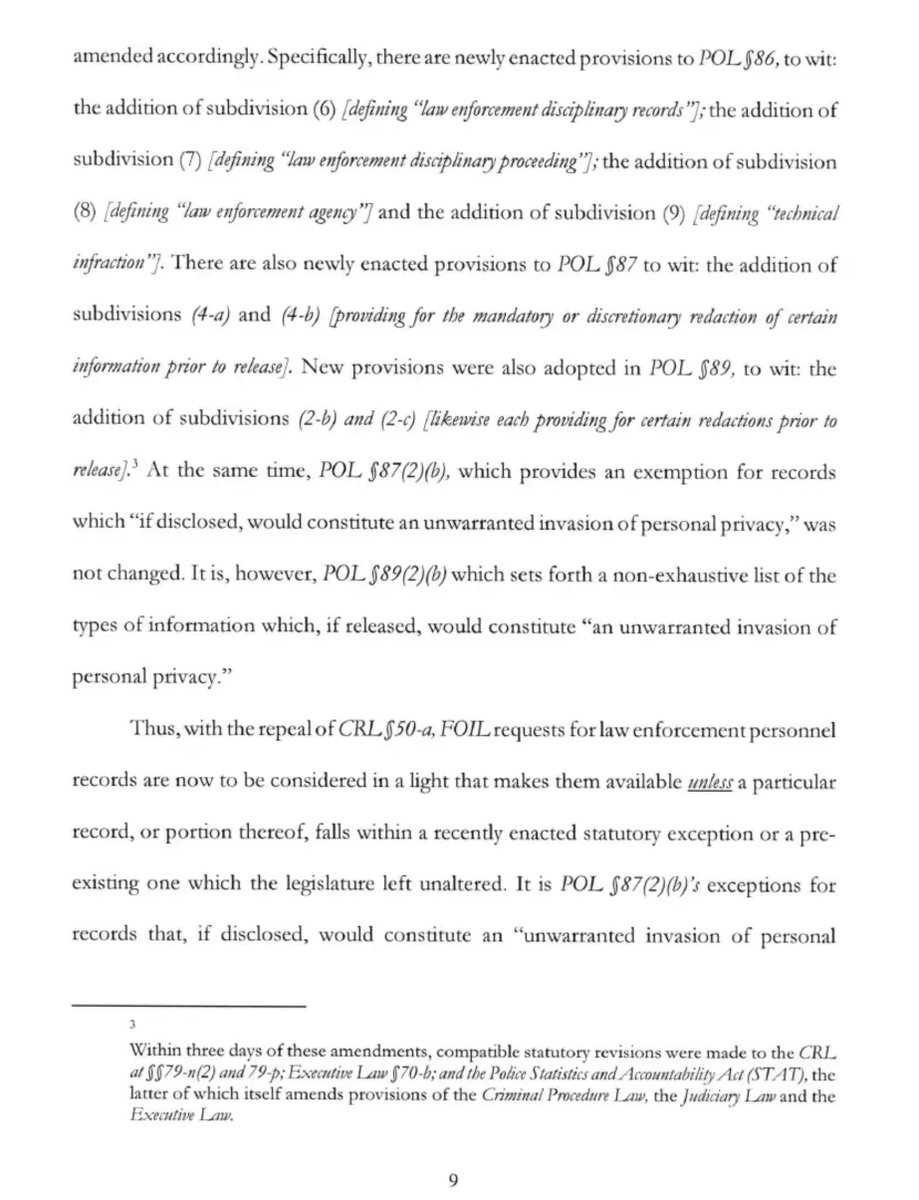
"...with the repeal of CRL 50-a, FOIL requests for law enforcement personnel records are now to be considered in a light that makes them available *unless* a particular record, or portion thereof, falls within a recently enacted statutory exception or a pre-existing one..."
This section of the decision focuses on whether disclosure of certain enumerated police disciplinary records would be an "unwarranted invasion of personal privacy" within the meaning of section 87(2)(b) of the FOIL 





FOIL section 87(2)(b) provides, in pertinent part, that an agency can withhold records which "if disclosed would constitute an unwarranted invasion of personal privacy under the provisions of" FOIL section 89(2)
dos.ny.gov/coog/foil2.htm…
dos.ny.gov/coog/foil2.htm…
Analyzing the potential applicability of these #FOIL exemptions for certain private information and records to the police disciplinary records at issue in the case at hand, the Court first addressed the police unions' arguments that the records should not... 


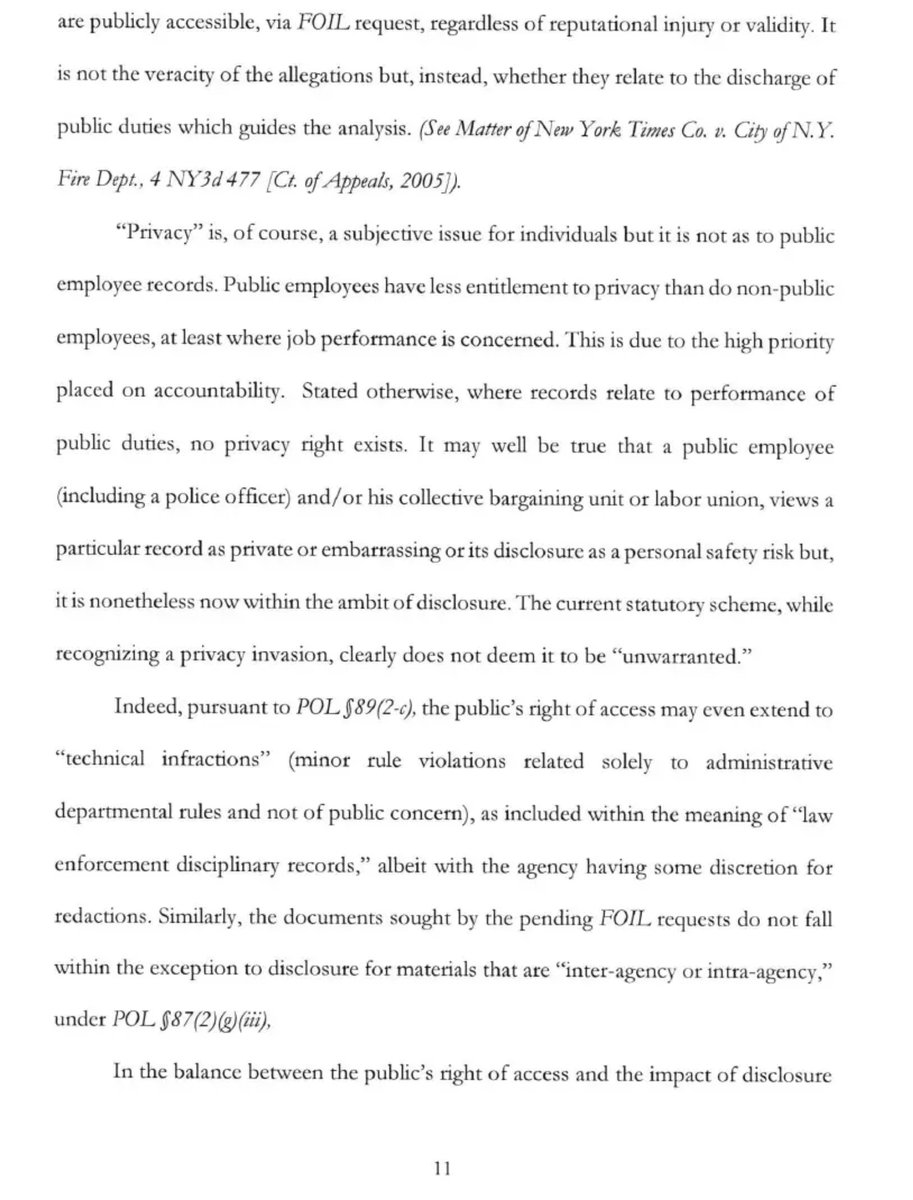
be disclosed because they dealt with "unsubstantiated" charges:
"In terms of public access, it is of little consequence that records contain unsubstantiated charges or mere allegations of misconduct. Where counseling pertains to job performance, or allegations relate...

"In terms of public access, it is of little consequence that records contain unsubstantiated charges or mere allegations of misconduct. Where counseling pertains to job performance, or allegations relate...


...to public duty, such records are publicly accessible, via FOIL request, regardless of reputational injury or validity. It is not the veracity of the allegations, but, instead, whether they relate to the discharge of public duties which guides the analysis." 

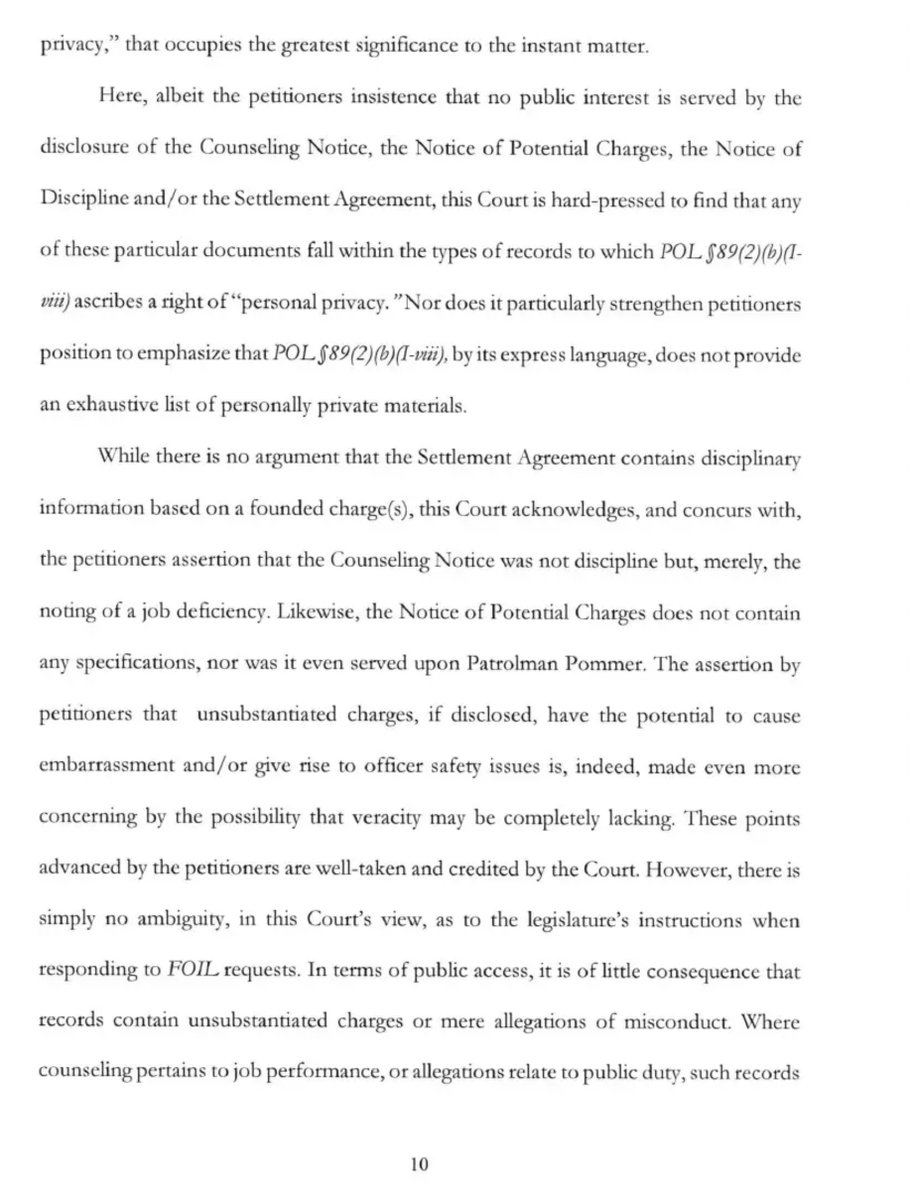

Here's what I think is my favorite section of the decision:
"'Privacy' is, of course, a subjective issue for individuals but it is not as to public emplyoee records. Public employees have less entitlement to privacy than do non-public employees, at least where job performance...

"'Privacy' is, of course, a subjective issue for individuals but it is not as to public emplyoee records. Public employees have less entitlement to privacy than do non-public employees, at least where job performance...


...is concerned. This is due to the high priority placed on accountability. Stated otherwise, where records relate to performance of public duties, no privacy right exists. It may well be true that a public employee (including a police officer)... 

...and/or his collective bargaining unit or labor union, views a particular record as private or embarrassing or its disclosure as a personal safety risk but, it is nonetheless now within the ambit of disclosure.... 

...The current statutory scheme, while recognizing a privacy invasion, clearly does not deem it to be 'unwarranted.'" 

• • •
Missing some Tweet in this thread? You can try to
force a refresh

